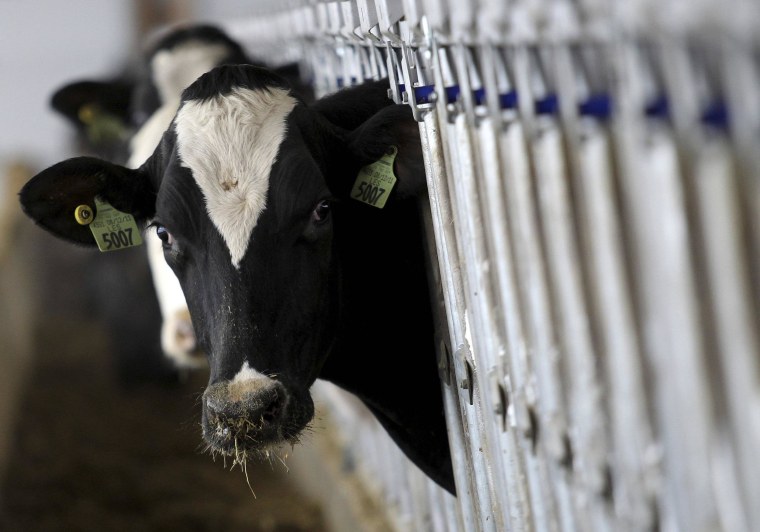SIOUX FALLS, S.D.— Unable to find enough workers to carry out the painstaking tasks of milk production, dairy producers in South Dakota are looking to Puerto Rico and its unemployed.
Puerto Rico, a U.S. territory, has been dealing with an economic crisis and its residents have flocked to the mainland over recent years. The jobless rate in Puerto Rico stands at 12 percent, but because Puerto Ricans are U.S. citizens they can easily relocate to the mainland.
It's no secret that immigrant labor is crucial at many agricultural enterprises in the U.S. The American Farm Bureau Federation estimates that about 80 percent of the agricultural labor force is foreign born and over half is unauthorized to work in the U.S.
But migration from Mexico has dropped to net zero over recent years, with more Mexicans leaving the U.S. than are coming in.
Certain agricultural industries are allowed to hire foreign-born workers seasonally under a visa category, but dairy farms do not qualify because they operate year-round. A study commissioned by the National Milk Producers Federation released in June 2015 concluded immigrant labor accounts for 51 percent of all dairy labor in the U.S.
South Dakota dairy farms produced 209 million pounds of milk in 2016, according to the National Agricultural Statistics Service. That's far less than the more commonly known milk-producing states of California and Wisconsin, but the state's pilot project to find another labor source is gaining attention.
"If this is successful, this would be a significant success for the U.S. dairy industry, certainly South Dakota's industry," said Jaime Castaneda, senior vice president of the National Milk Producers Federation. "So, we are watching it. We are looking at what happens."
Experts from the South Dakota State University Extension hope to bring about 20 workers by September.
They hosted recruiting sessions in November and December in three Puerto Rican communities that are home to dairies and addressed topics such as the farm routine, weather and cost of living. Of the 28 people who attended the sessions, half had an agricultural background. Others were electricians, nurses and construction workers. More sessions are planned for May.
The team is focused on developing a program that would help the workers adjust to life in the Great Plains. Karla Hernandez, an SDSU Extension forage field specialist, said producers in South Dakota, Minnesota and Wisconsin who have hired Puerto Ricans have seen them last only short periods on the job after realizing the demands, pay and the stark differences between the two places.
"Say you have a person from Mexico who gets here, that person will stick around because he has a need to provide for himself and for his family back in Mexico. Now if you get a Puerto Rican and he doesn't like the job, he can go home very easily because he doesn't need to wait for any visa or passport," Hernandez said.
Castaneda said his organization is not speculating about what the incoming Trump administration might do in terms of immigration. But he said the group will continue to pressure Congress and the administration to approve changes that would allow immigrant dairy workers to stay in the U.S. for at least three years with the option of reapplying after a stay in their home countries.
This story includes material from NBC Latino.
